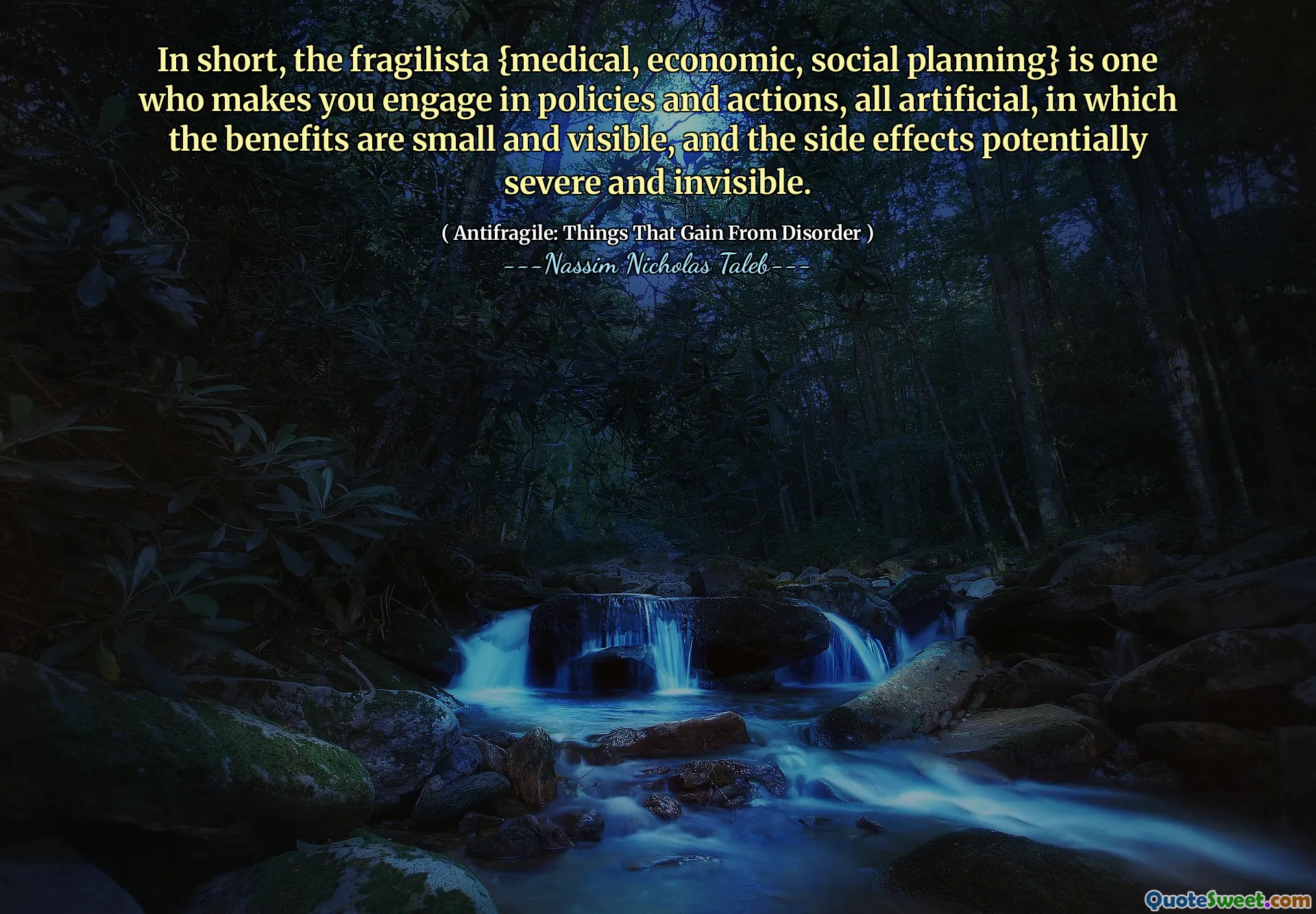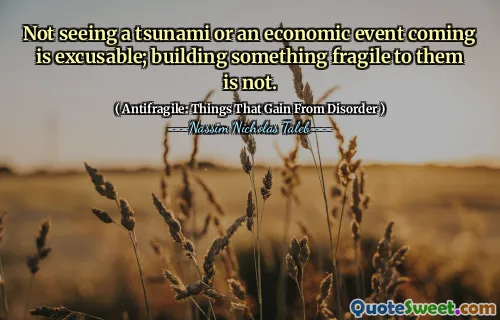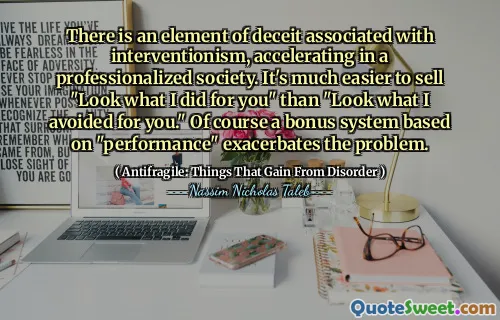
In short, the fragilista {medical, economic, social planning} is one who makes you engage in policies and actions, all artificial, in which the benefits are small and visible, and the side effects potentially severe and invisible.
This quote insightfully emphasizes the danger posed by fragilistas—individuals or systems that implement policies prioritizing apparent, immediate benefits while neglecting the hidden long-term costs. In various fields such as medicine, economics, and social planning, the temptation to pursue quick fixes or simple solutions often leads to overlooking subtle but significant risks. The fragilista mindset is, in essence, a failure to truly understand complex systems and the nonlinear consequences of intervention.
From a broader perspective, this reflects a fundamental tension in decision-making: short-term visibility versus long-term sustainability. The fragilista is focused on tangible, measurable benefits to appease public opinion, funders, or political agendas, yet this shortsightedness can cause fragile structures that break under stress or unforeseen circumstances. The invisible side effects—be they economic crises, social unrest, or medical complications—lay dormant until they erupt, often with devastating impact.
The concept also challenges the value of centralized planning and top-down expertise where complexity rules. Instead, it encourages a mindset more probabilistic and skeptical, urging humility about what can be known and an appreciation for redundancy and resilience. The antifragile perspective therefore advocates for systems that thrive from disorder and uncertainty rather than breaking under it.
In sum, this quote from Nassim Nicholas Taleb’s Antifragile warns us against simplistic interventions motivated by superficial benefits, urging a deeper consideration of what is unseen but potentially catastrophic. It is a call to recognize and resist fragility embedded in our policies and institutions.










